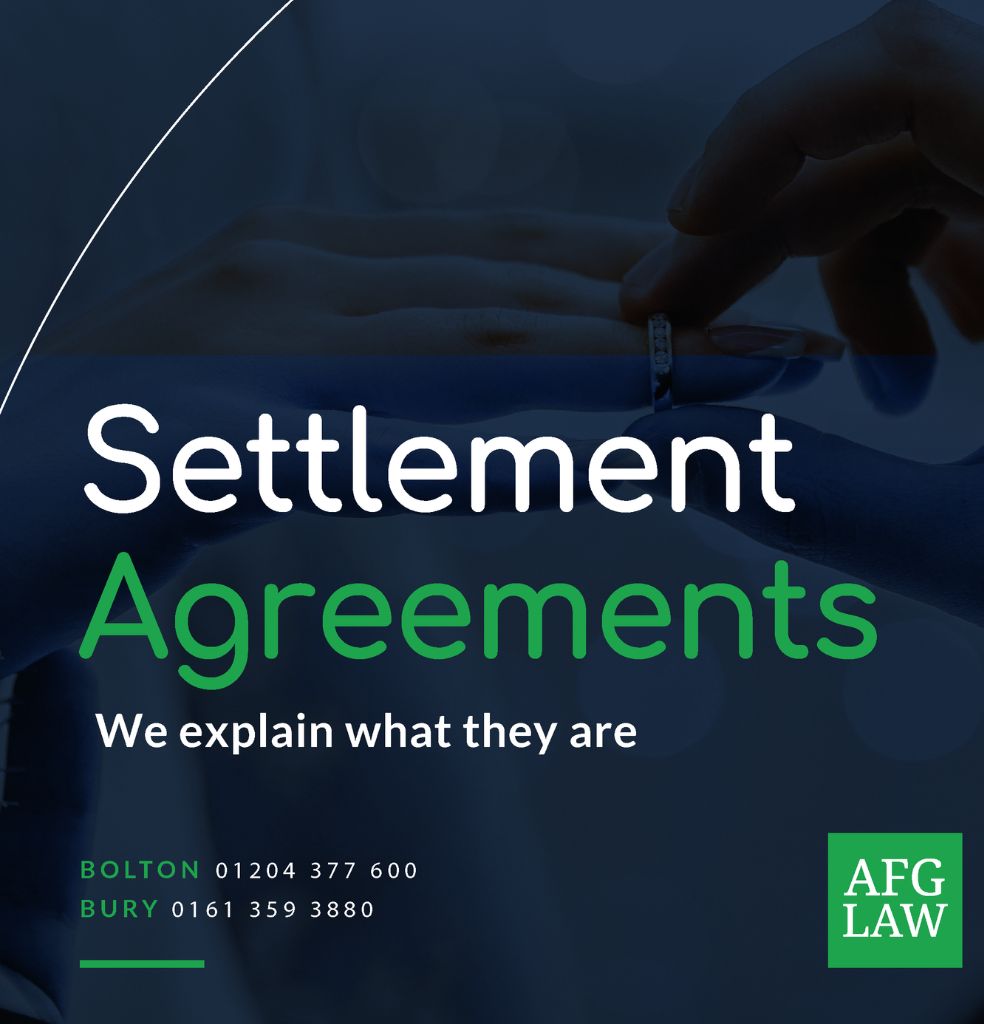What are Settlement Agreements? When can they be used? Who do they benefit more – the Employer or the Employee?
What are Settlement Agreements?
A Settlement Agreement is a formal, legally-binding agreement which is typically entered into between an Employer and an Employee when they have agreed to go their separate ways.
Whilst the exact content of the Agreement will differ depending on the circumstances, it is common to find that the Agreement will usually deal with the following issues:
- Full and final settlement – the ultimate purpose of an Agreement is to ‘draw a line’ under the matter from the perspective of both parties. In other words, it represents a clean-break, in which the Employer agrees to pay the Employee a sum of money, in return for the Employee agreeing not to sue the Employer. As part of that, the Agreement will typically – but not always – follow events where the Employee could potentially bring proceedings against their Employer, such as where an Employee is being made redundant, or where there are potential, or ongoing, disciplinary proceedings against the Employee. As such, the Agreement will direct that both parties agree to essentially part ways without the matter proceeding any further, hence the Agreement will be in “full and final settlement”, as well as this being without any admission of liability on the part of either party.
- Confidentiality – due to the Agreement being without any admission of liability, it is for that reason why both parties will be expected to keep the Agreement confidential and private. Whilst there are exceptions to this (such as any whistle-blowing or disclosure to legal/financial advisers and spouses), confidentiality is a hallmark of such Agreements.
- Non-derogatory comments – this essentially is the duty on both parties not to ‘bad mouth’ each other. Again, this ties in with the nature of the Agreement being ‘mutual’ in nature i.e. neither party is admitting liability for anything.
- Legal costs – a useful advantage for Employees is that the Agreement will typically state that the Employer will contribute between £300-£500 + VAT towards the Employee’s legal costs in seeking advice in respect of the Agreement.
- Company property – provision will also be made for the return of all company property, together with there usually being an obligation on the Employee to ensure they have irretrievably deleted any copies of confidential information which they have, such as any details relating to the company’s data which they may have on a home laptop or memory stick.
- Reference – finally, a common element of Agreements is that the Employer will provide a reference in respect of the Employee, with the wording of this being agreed and set out within the Agreement itself.
Other clauses can also include such things as garden leave, resignation as a Director from the company, the transfer of any shareholdings of the Employee, together with any property of the Employer which the Employee is to keep rather than return.
When are these Agreements used?
As stated above, an Agreement will normally, though not necessarily, be entered into following events where the Employee could potentially sue their Employer. An obvious example is where an Employee is being redundant, though disagrees with the process being followed by the Employer and has indicated that they will challenge this – including by way of commencing Tribunal proceedings if the Employee is ultimately made redundant.
Likewise, scenarios often arise where an Employee may feel as though there is a breakdown of trust between them and their Employer. As such, rather than risk Tribunal proceedings being issued, an Employer may suggest that both parties agree to part ways, and enter into a Settlement Agreement in order to facilitate this.
In short, you will often see the Agreements in scenarios where dismissal on the cards, or where the Employee themselves is threatening to take further action in respect of an issue, such as by making a Grievance.
Who benefits most from the Agreement – the Employer of the Employee?
The useful thing about such Agreements is that they allow both parties to bring about a swift, fair resolution to what would otherwise be a prolonged, stressful alternative.
From an Employer’s perspective, a Settlement Agreement saves the time, effort and cost which would come in seeking to defend any Tribunal proceedings commenced by an Employee, with such resources instead being channeled back into the business.
Likewise, from an Employee’s perspective, Tribunal proceedings should (as with any litigation) be an option of last resort. Aside from the stress and uncertainty caused by such proceedings, Employees have to bear in mind that the default rule in Tribunal proceedings is that each side bear their own legal costs – regardless of who ‘wins’ at the end.
Whilst there are exceptions to this, they are few and far between. To that end, an Agreement not only ensures that the Employee is compensated for the claims which they could potentially have brought against their Employer, but it also ensures their personal finances are preserved, rather than potentially thousands of pounds being incurred in legal fees. A common benefit to both parties is that a clear line is also drawn under the matter, with each side being free to simply get on with their lives.
If you would like advice regarding any of the above, please contact our Dispute Resolution Team on 01204 377600 or email disputeresolution@afglaw.co.uk.
